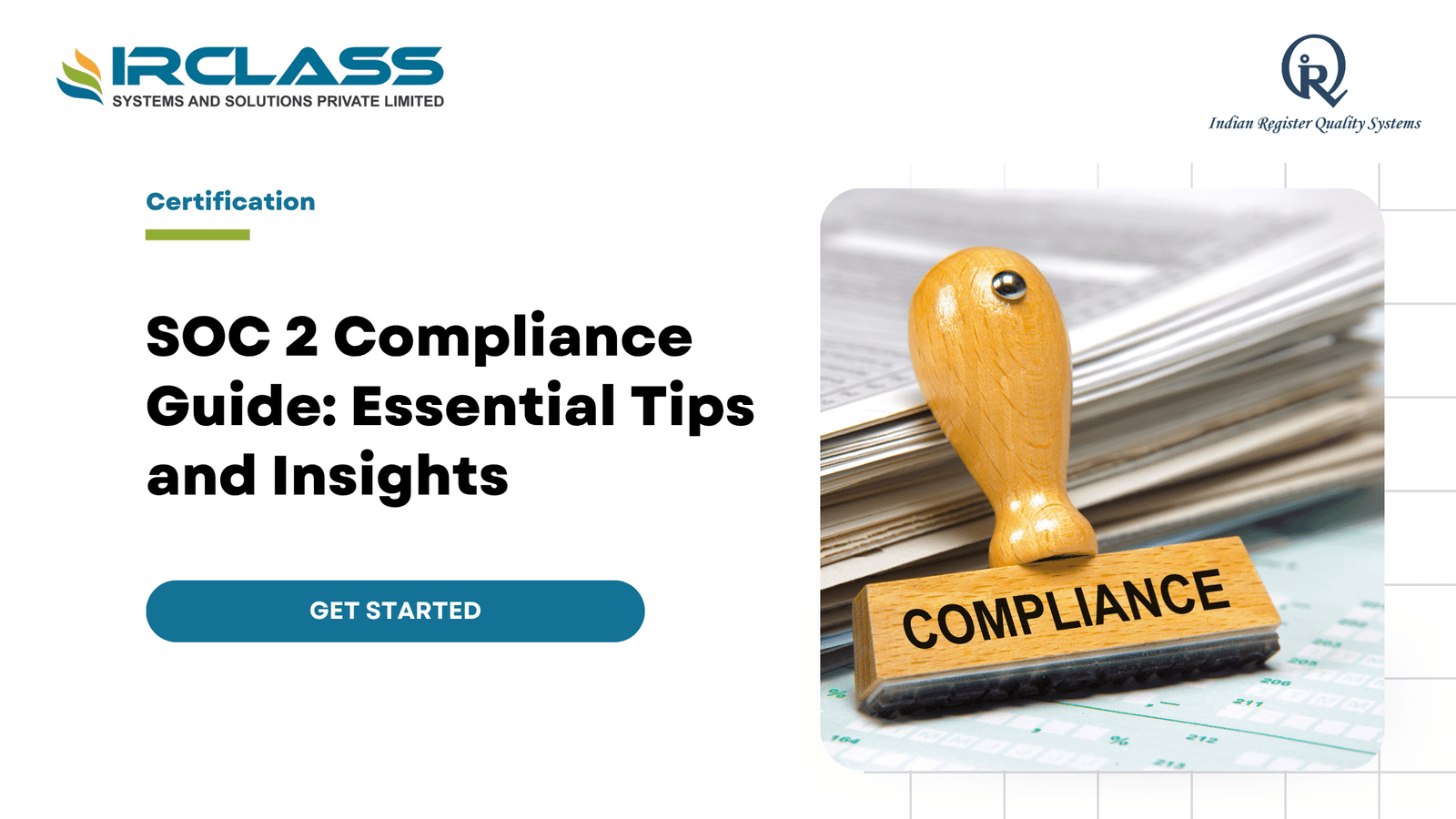Category: ISO
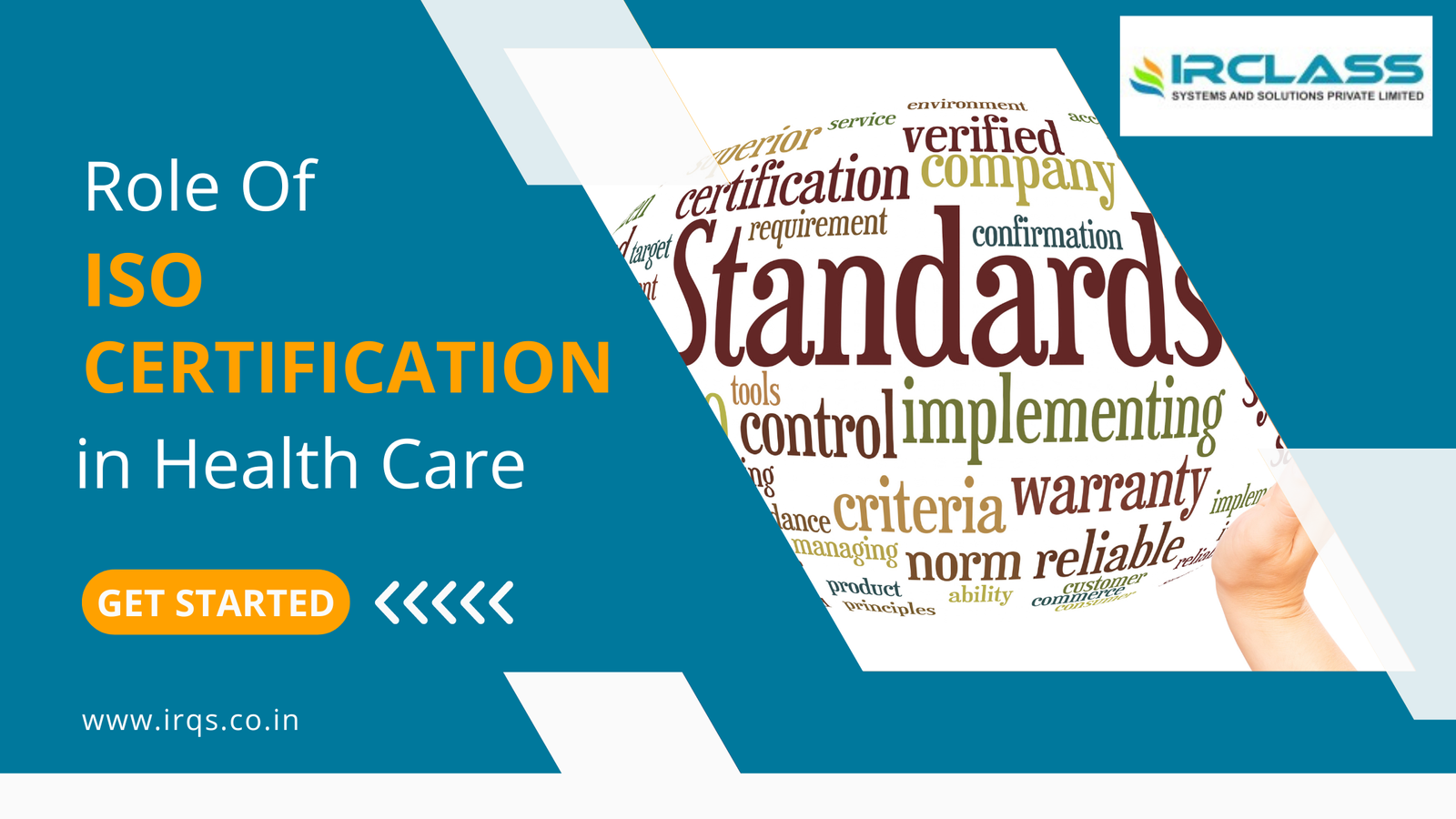
The Role of ISO Certification in Health Care Quality Management
Quality management in the expanding and changing healthcare field is an essential part of quality healthcare that exists to protect patients, staff members, and others affected by individual performance. It is through ISO certification that you can achieve this in the best possible manner. The International Organization for Standardization (ISO) developed a set of internationally acknowledged standards that assist organizations in meeting the needs of customers and other stakeholders. The health sector relies heavily on ISO certification for quality control, patient safety, and streamlining service delivery. In this article, we will understand the role of ISO certification in healthcare quality management. Role of ISO Certification in Health Care Quality Management 1. Enhancing Quality Management ISO Certification helps a healthcare organization in building an effective quality management system (QMS). This system is made up of different components, including hazard management and process control but also continuous play improvement. ISO standards can help healthcare providers improve patient outcomes, reduce errors, and improve their processes. Continuous improvement is a very important part of ISO certification To keep these processes effective and efficient, healthcare organizations are encouraged to review their processes regularly. Take this preventative quality management action, and find the problems before they grow into big issues which inevitably results in better care overall. 2. Ensuring Patient Safety Patient safety remains a central theme associated with quality management in health care. There are high standards of quality control and process management built into ISO certification, in particular concerning the very idea behind every single one of these processes should be risk mitigation. Healthcare organizations ensure a safer environment for patients when they adopt these standards and risk areas are identified 3. Improving Service Delivery ISO certification also places lots of emphasis on providing better quality health care service to patients. Healthcare organizations can use standard practices and best practice implementation to deliver a product of high quality with consistency as its key. That is better for the patient and it helps earn a health care provider’s trust. 4. Global Recognition and Compliance The Global Acceptance of ISO certification is One of the Key Benefits. ISO certificate is proof that the healthcare provider has an excellent quality of work. This is especially useful for businesses who want to take their services overseas or work with international partners. ISO certification also helps in meeting regulatory requirements. 5. Ensuring Patient Safety Patient safety is an essential component of healthcare quality management. ISO standards, and in particular ISO 9001 also specifically address risk management/process control. These standards can help healthcare organizations identify and manage risks, keeping patients safe. For instance, under ISO certification health care providers should have strict procedures for the receipt and storage of medical supplies/medications. 6. Better Compliance with Regulations Health care is a heavily regulated field with broad compliance requirements. This kind of regulation becomes further strict, codes are established by the authorities and ISO Certification is useful for healthcare organizations to certify that they meet regulations consistently. For instance, compliance with ISO standards often coincides with other local and international regulations thereby reducing the risk of facing legal troubles or penalties. It also improves the organization’s credibility and reliability. 7. Higher Operational Efficiency Once adopted, ISO standards help such operational processes as health care practice in health organizations to be carried out much easier. This results in reduced inefficiency, waste, and resource consumption. This can enable healthcare providers to deliver their service more effectively, and frequently at a lower cost. Deeper efficiency saves everyone time and allows them to focus more on patient care versus administrative work. 8. Improved Data Management and Security From data management to securement, ISO standards detail how you can learn how and when your company should be following these procedures. Health data is sensitive information and compliance with such standards ensures that patient data stays safe, as all possible security measures are being taken care of. This lowers the chances of data breaches and adheres to privacy regulations which earns trust from patients as well as stakeholders. Conclusion To sum up, the health care quality management should be based on ISO certification. It is a system of structured review processes used for managing and improving the quality, safety, and services launched in hospitals. Using ISO standards can help healthcare organizations establish a global presence, adhere to regulations/guidelines, and offer better patient services at last. Although the process for ISO certification can be difficult, it is a worthwhile task to attempt and accomplish when providing patients with first-rate health care. Quality certification is a process and collaborating with an experienced company in the field of getting health care ISO certified is important. IRQS (Indian Register Quality Systems) provides an extensive range of certification services, specializing in healthcare. IRQS will be able to steer you on the right path and under their guidance, your organization can achieve the highest standards in quality management. IRQS is here to provide the necessary support if you would like to raise your health care services through ISO certification.
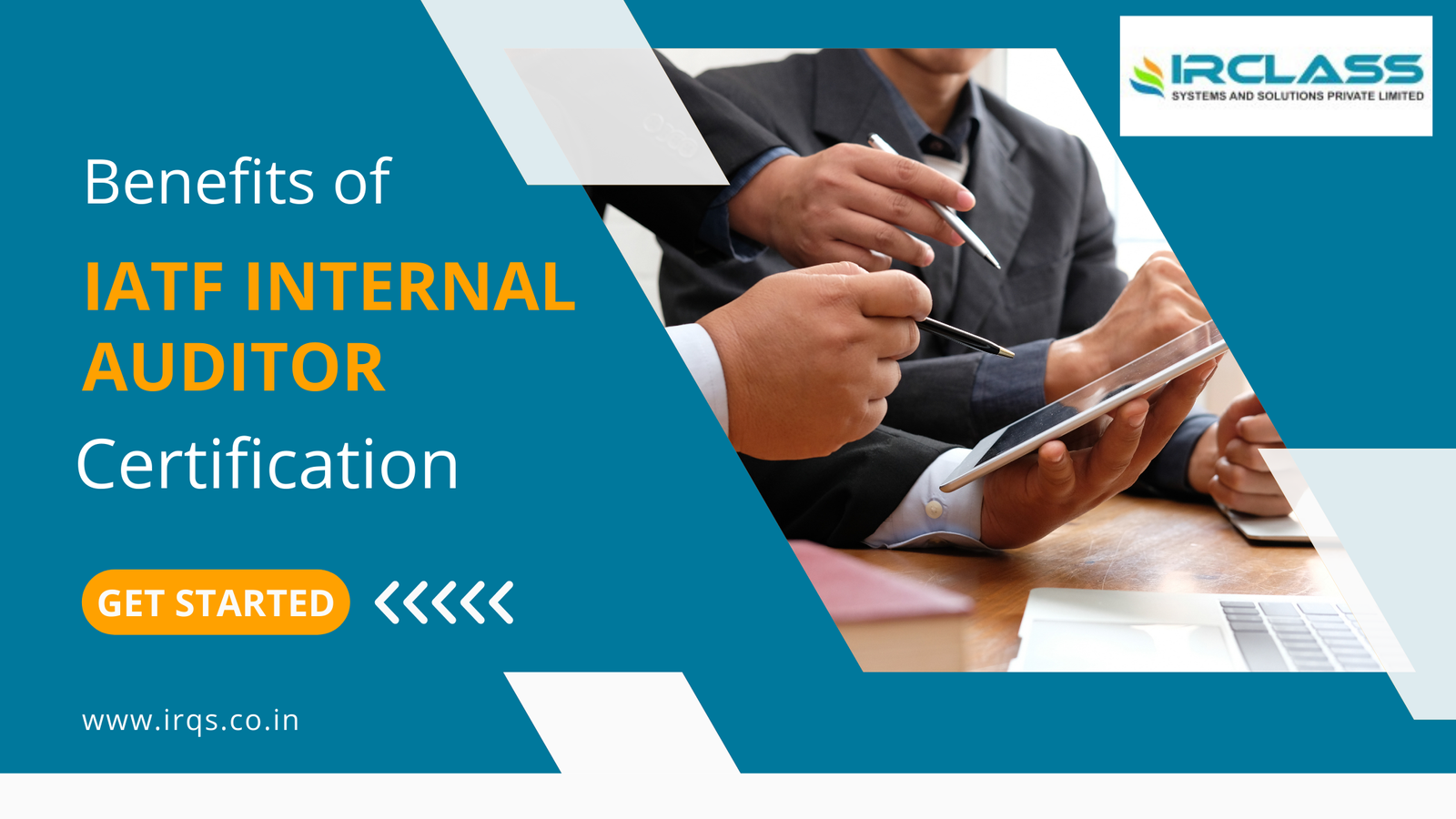
The Benefits of IATF Internal Auditor Certification for Your Career
The Benefits of IATF Internal Auditor Certification for Your Career In the expansive field of quality assurance, you can achieve a rewarding career with suitable and advanced qualifications. The IATF is one such certification that you should obtain. Its full form is the International Automotive Task Force. With this certification, you can assist organizations to improve their Quality Management System (QMS) by becoming an IATF 16949 Lead Auditor. Also, you can apply your newly acquired knowledge in Automative Core Tools to benefit the company. Previously, it was ISO/TS 16949:2009 that met customer requirements. The upgrade focuses on risk evaluation and a more comprehensive approach, complying with the industry trends. A significant change is the certification now aligns with the ISO 9001:2015 standards. It enables the companies to flawlessly integrate the standards with other quality management systems in their business frameworks. How It Works The standard requires auditors to review and verify that automobile companies adhere to strict standards for quality management. The procedure for certification usually involves thorough education, passing an exam followed by a series of tests to show proficiency. When they have completed this process auditors show their capacity to assist organizations in meeting the international standards for automotive quality and ultimately lead to better products, greater customer satisfaction, and top-notch procedures. Requirements for Certification Benefits You Receive by Obtaining the Professional Certificate Enhanced Career Opportunities One of the most significant advantages of getting this certificate is the substantial increase in the opportunities for your profession. Since the auto industry is very competitive and quality-focused those who have this accreditation are sought after. Increased Knowledge and Skills You gain top skills like performing detailed audits, identifying violations, etc. The skills are highly transferable and could enhance your competence as a professional. Professional Credibility Possessing the IATF Auditor Certification adds value to your professional resume. It demonstrates to the public and your colleagues your expertise concerning compliance with the strict requirements of your industry and your skills for conducting efficient audits. Improved Company Performance You assist your company in identifying areas for efficiency, decreasing waste, and improving overall effectiveness. The results can be better product quality, greater satisfaction of customers, and excellent financial performance for your company. The work you do as a certified auditor could directly and positively influence the success of your company, and it will reflect positively on your job. Networking Opportunities Achieving and maintaining this certification could also increase your professional circle. Training and certification programs typically include interaction with professionals working in the field. It provides the opportunity to exchange knowledge about experiences, knowledge, and the most effective techniques. Keeping Current with the Latest Industry Trends The industry of automotive is continuously developing, with new techniques as well as regulations and quality standards constantly being introduced. Acquiring the IATF Internal Auditor Certification will help to keep you up-to-date with the most effective strategies. Personal and Professional Development Earning the certification is rigorous and requires a lot of dedication and commitment. The certification can be an essential source of happiness for professional and personal fronts. It shows your capacity to create and reach ambitious goals, increases your ability to solve problems, and increases confidence in the capabilities of your profession. Establishing and Maintaining Compliance As an auditor-certified, you assist your company in navigating the many complexities that come with standards and ensure that the procedures, documents, and processes comply with accepted standards. Improving the Work-Environment Audits conducted by internal auditors are essential in creating a quality culture in an organization. When employees are aware that their organization is committed to high standards and continually making improvements, it will boost motivation and enthusiasm. Being a certified internal auditor is essential in fostering a positive working environment. Facilitating Risk Management The IATF Standard 16949 focuses on risk-based thinking which is vital for recognizing the potential risk within an organization. As an internal auditor certified is certified to analyze risks that come in quality-related processes and implement strategies for managing those risks efficiently. Career Flexibility and Mobility The knowledge and skills gained by completing IATF Internal Auditor Certification IATF Certified Internal Auditor is highly transferable giving you more career flexibility and freedom. Contribution to Industry Standards Being an internal auditor certified you can contribute to the overall business by being involved in developing quality standards. The knowledge and experience gained from your hands will be invaluable in determining future revisions to the IATF Standard 16949 or any similar standards. Combining practical experience with theoretical Experience and Knowledge The Internal Auditor Certification procedure effectively balances the theoretical understanding with hands-on experience. Training programs offer in-depth knowledge regarding the IATF 16949 standard. In addition, the auditing requirements ensure that you can use these skills in actual situations. Combining theory with application gives you skills highly sought-after by companies. Developing a Strategic Mindset Internal auditing and Quality Management are not just about complying with procedures, they demand an underlying strategy. When you become an accredited internal auditor, you consider what quality management practices align with the organizational goals. Learn to look at the big picture and appreciate how quality management can ensure business performance. Conclusion The Internal Auditor Certification of the IATF has multiple benefits that will significantly affect your professional and career development. It can help you increase your opportunities for advancement and credibility in the workplace to promote constant improvement and create an environment of excellence within your business.
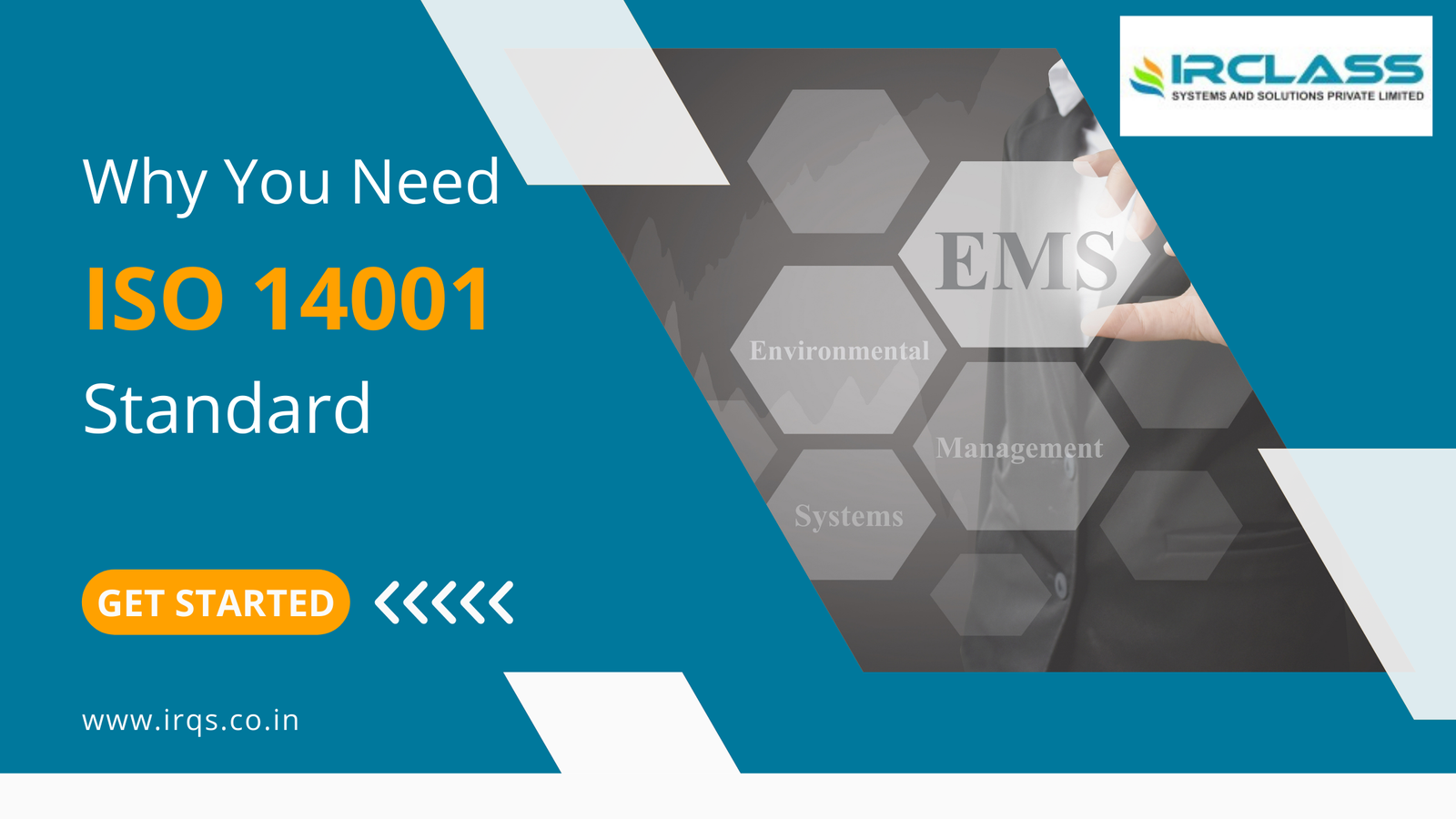
Why Your Business Needs ISO 14001 Standard Certification
Why Your Business Needs ISO 14001 Standard Certification It is all about helping companies to be more environmentally conscious. It’s sort of a manual which companies can use to be certain that they’re eco-friendly. Consider it an emblem that indicates the company’s commitment to safeguarding the environment. This is how it goes. It starts when a company decides to go more eco-friendly. They consider all activities they perform that could impact on the environment, such as producing waste or using energy. After that, they apply ISO 14001 rules to set an action plan. This helps reduce the impact they have on the environment. Being certified isn’t one time thing. Businesses must continue to work to improve their environmental plans and be examined by professionals to be sure they’re doing the right thing. If they’ve satisfied all specifications, they receive their ISO 14001 certificate. Businesses and customers recognize this and have confidence in the business to be concerned about the earth. ISO 14001 is like an agreement between businesses and the environment. It ensures that everyone does their part in keeping the Earth well. Practical Reasons Why Your Company Should Get the Certification Today, companies don’t just focus on money. Additionally, they have a responsibility toward society and the environment. The certification helps businesses meet this obligation through a focus on the management of environmental issues. These are the main benefits for businesses to look into have ISO 14001 certified: 1. Reducing Negative Impact on the Environment It makes it easier to recognize and control the aspects of your business that may harm environmental quality. Following these guidelines will help you cut back on pollution, eliminate waste, and use resources more efficiently. 2.Saving Costs Improvements in environmental practices often result in costs savings over the long term. ISO 14001 helps you identify possibilities to lower energy use and waste production and improve the efficiency of resource usage, through implementing these methods that, your company can cut operating costs, increase efficiency, and let you into new sustainable markets. 3. Boosting Engagement of Employees The company becomes an inspiration to its new and old employees. They are proud to work in a firm that shows concerns about the environment. It increases their morale. It helps in better collaboration. Also, it encourages creativity among team members. People who are motivated and engaged are more efficient and loyal, which will help your company over the long run. 4. Improved Supplier Relations Nowadays, it is a practice to choose suppliers that boast environmental responsibility. The certification integrates an ethical code in a regulatory framework. There is understanding between stakeholders. There is a genuine focus on sustainability. The collaboration could lead to greener practices in your business’s ecosystem. 5. Improving Risk Management When there is more expertise to manage risks concerning the environment, business operations become more efficient. The certification integrates the method to proactively evaluate the various risk factors. Also, there are provisions to counter them. The response is prompt. This approach reduces the chance of disruptions and improves overall business continuity. 6. Demonstrating the power of Leadership This shows you’re dedicated to making a lasting impact on the environment beyond financial success. Your Leadership can inspire others, such as customers, investors, and the communities surrounding them, to believe in and trust the business. This positions your business as a good corporate company, which helps to sustain development and better the environment. In a nutshell, ISO 14001 certification offers numerous advantages for companies looking to incorporate environmental responsibility into their business practices. The requirements you should consider to receive the Certification This is what you have to complete: Learn the standard: Study and know the ISO 14001 standard. It pertinently defines the criteria to establish a successful Environmental Management System (EMS). The Top Management Commitment: Your top managers need to understand the issues clearly. They must also demonstrate dedication to environmental management, define clear policies, and distribute funds. Determine Environmental Impacts: Determine how your processes impact the natural environment. This can include the production of waste, energy consumption, and emission levels. Legal and other requirements: Identify relevant legal and regulatory requirements related to the environment and ensure compliance. Goals and Targets: Set measurable environmental goals and objectives. They should be precise as well as achievable. They should also be aligned with the policy you have established. Roles and Resources: Allocate necessary resources. Set out roles and responsibilities for creating and maintaining the EMS. Training and Education: The employees must know the EMS and what they are expected to do. Training is necessary and should be provided to raise awareness. Information: Develop necessary documentation, such as an environmental policy, targets, and procedures. Ensure that these documents are appropriately controlled and kept up-to-date. Operational Control: Establish procedures for managing your operations’ environmental impact. This may include regulating garbage disposal, reducing power consumption, and eliminating pollution. Emergency Preparedness: Develop a plan to handle potential emergency situations in the environment. Instruct employees on how to react effectively. Monitoring and Measurement: Always monitor your performance in the environment. This will help you see how you are progressing towards your goals. Internal Audits: Conduct internal audits to ensure the EMS functions as it should. Find areas of improvement. Managerial Review Management: The EMS should be reviewed frequently at the top to check its ongoing suitability, effectiveness, and efficiency. Continuous improvement: Seek ways to increase your efficiency in environmental management and EMS. Implementing ISO 14001 To put ISO 14001 into action: Strategy: Follow these steps: Verify: Monitor and measure your performance in the environment. Perform regular audits to ensure all is running just as it should. Act: Based on audit results and performance statistics, make changes to enhance. Change your procedures and processes whenever necessary. Conclusive Note It’s about obtaining certification and making a genuine commitment to implementing more nature friendly practices. The ongoing commitment to environmental sustainability cannot just benefit the environment but help improve your company’s reputation and efficiency.
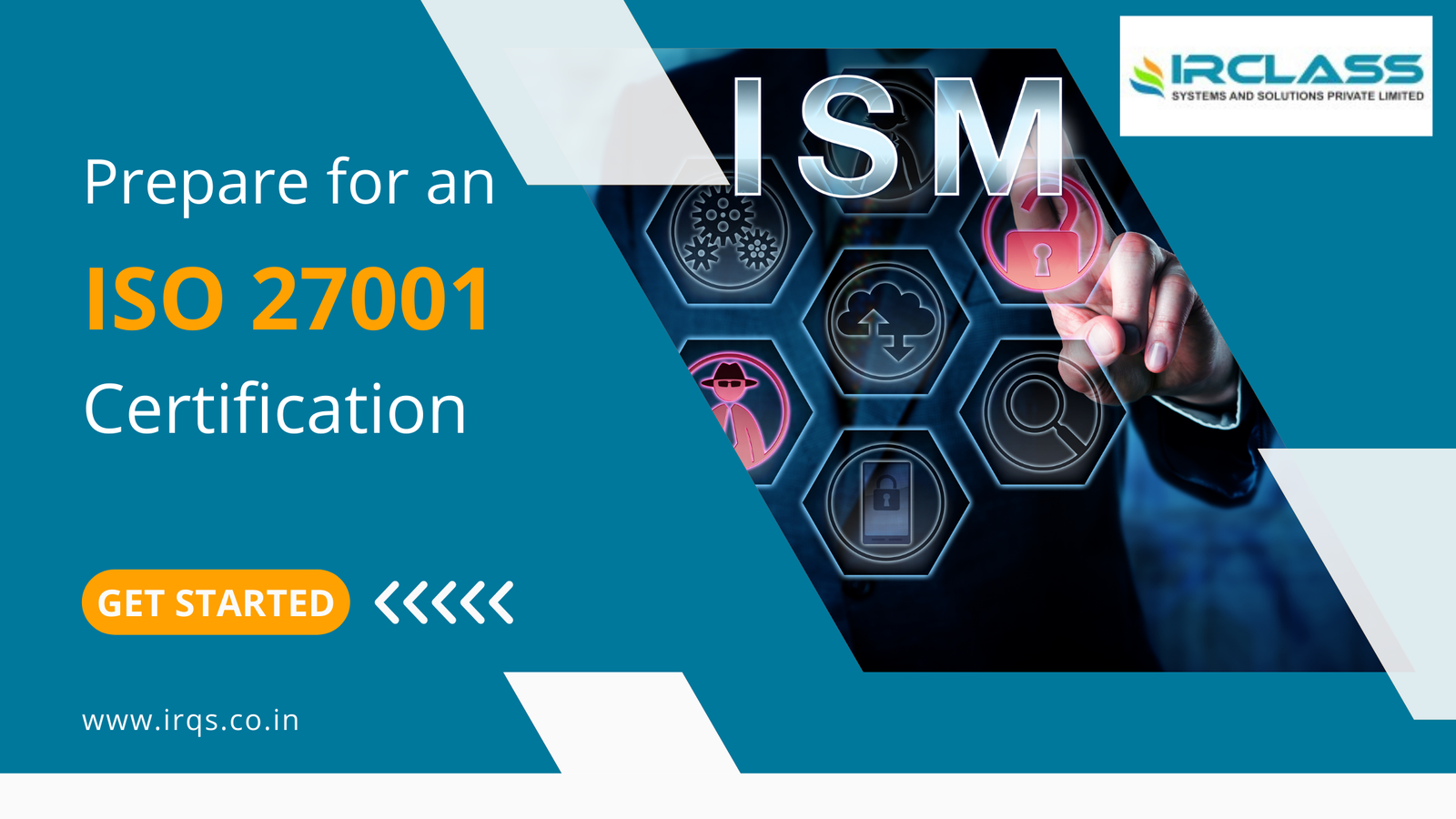
How to Prepare for an ISO 27001 Certification Audit
How to Prepare for an ISO 27001 Certification Audit A Precise Guide to Prepare for an ISO 27001 Certification Audit of Your Organization Introduction to ISO 27001 ISO 27001 is an international standard for helping organizations manage their information security. It contains requirements for an information security management system. Achieving certification according to ISO 27001 will go a long way in showing proof that you are a security-conscious organization. The reason to Prepare for the Certification A proper and systematic preparation for an audit is essential for any organization to get an ISO 27001 certification. In this way, an organization will be set for such an audit exercise; above all, the exercise could provide a way of pinpointing and addressing problems that may arise. In this connection, it saves a lot of time and resources. Steps to Prepare for ISO 27001 Certification Audit 1. Comprehension of ISO 27001 Requirements First, know the standard ISO 27001 by reading its official documentation. Know what the standard requires and comprehend the structure of ISMS. Get to know about the policies and controls that are needed. 2. Conduct a Gap Analysis A gap analysis identifies areas in need of improvement. Compare what you are doing against the requirements in ISO 27001. Make a list of the differences. This way, you know what to direct your efforts toward. 3. Create an Implementation Plan Formulate a plan based on the gap analysis, which shall specifically outline the steps to be taken in bridging the gaps. Assign responsibilities for each task identified at point two to team members. Timelines shall be set for each assigned task, and all members shall be clear on what they should do. 4. Train Your Team Make sure your team knows what ISO 27001 is all about. Conduct training sessions to explain why information security is essential. Teach them the policies and procedures to ensure that each one knows their role in maintaining security. 5. Document Everything Documentation is critical in ISO 27001. You need to Record all processes and procedures that your organization follows. These documents are meant to include: – Information security policies – Risk assessment processes – Security controls – Incident response plans Maintain these documents and keep them current, ensuring they are easy for anyone in your group to access. 6. Implement Security Controls ISO 27001 prescribes specific security controls that you need to implement. The controls will protect your information. Implement these controls in your organization. Here are some examples of controls: – Access control systems – Encryption – Backup procedures – Physical security measures To verify if these controls are effective. 7. Conduct Internal Audits Internal audits help to identify your weaknesses before the certification audit. Conduct internal audits regularly to verify whether ISMS is operating according to plans. Find out any weaknesses and correct them as quickly as possible. 8. Address Risks Risk management is an integral part of ISO 27001. Information risks shall be identified beforehand. Possible effects thereof will be evaluated, and effective measures to mitigate those effects will be adopted. Besides, your risk management plan shall be reviewed and updated regularly. 9. Perform Certification Audit Make complete preparations as the certification audit approaches. Review your documentation. Have all the security controls in place. Conduct a last internal audit. Remediate any last-minute issues. 10. Choose a Certification Body Select an ISO 27001 audit body that is reputable. Check if the selected body is credited and fully accredited—schedule for the audit. 11. Conduct the Certification Audit The certification audit is carried out in two phases: Stage 1: The Auditor goes through your documentation. They verify the design of your ISMS. Stage 2: The auditor evaluates the effectiveness of your ISMS implementation by reviewing security controls operation. Answer questions. Turn in all requested documents. Be cooperative with the auditor. 12. Conforming Non-Conformities Non-conformities shall be reported by the auditor whenever problems are detected. Address these non-conformities quickly. Implement corresponding corrective actions. Provide evidence of such actions to the auditor. 13. Maintain Your ISMS It’s not a one-off event, and maintaining the ISMS requires regular reviews and audits, keeping documentation up to date, and continuous improvement of security practices. 14. Communicate with Stakeholders Keep everyone involved: employees, customers, and partners. Show that your certification to ISO 27001 offers benefits. Present it as a demonstration of your profound concern for ensuring information security; hence, it builds trust and confidence. 15. Monitor and Measure Performance Your ISMS performance management: Key performance indicators—to measure effectiveness, regularly review these metrics and implement improvements as necessary to attain security enhancement. 16. Stay Current Information security standards change over time. Be informed about the changes in ISO 27001. Update ISMS and it will help you continue following the newly set standards. 17. Use Technology to Your Advantage Leverage technology in managing your ISMS. Software tools could be used for documentation and risk management. As many processes as possible should be automated; this way, the compliance burden will be reduced. 18. Support the Security Culture Foster a security culture within an organization. Encourage staff to adhere to security policies. Reward good security practices and this way make information security part of day-to-day work. 19. Find Help Externally if Needed If you’re encountering difficulty with it, look for outside help. Consultants can give you expert support with their experience; they can help in gap analysis, training, and implementation. This may relieve the certification process somewhat. 20. Reflect and Always Improve Quality lies within continuous improvement, so at all times, review your ISMS, look for improvements, and implement the change; it makes your ISMS effective and compliant. Conclusive Note ISO 27001 certification audit preparation involves a well-researched and detailed process. This consists in understanding the standard and conducting gap analyses on controls. Other key activities include training for the team, the documentation of processes, and internal audits. And, of no lesser importance to it, the assessment of non-conformities, the maintenance of your ISMS, and fostering a culture of security—thereby affording you a better opportunity

Achieving SOC 2 Compliance: Ensuring Trust in Data Security
Achieving SOC 2 Compliance: Ensuring Trust in Data Security In the fast-paced digital landscape, data security is paramount for all organizations. Over time, more organizations have become cent percent dependent on technology to conduct business operations. Organizations must handle sensitive information with robust security controls. As a result, ISO frameworks have become critical. SOC 2 is a well-known auditing standard. It was designed by the American Institute of Certified Public Accountants or AICPA. The global standard is essential to assess the information security controls in an organization. SOC 2 audits are ideal to review the effectiveness of the data security system. It also reviews data availability, integrity, confidentiality, and privacy norms. Service Organization Control 2 – A brief outline SOC 2 or Service Organization Control 2 is a set of well-defined guidelines for organizations that need data management and storage. Companies that store, process, access, and transmit sensitive data need the SOC 2 certificate. It provides a well-defined and comprehensive framework for evaluating the effectiveness of an organization’s security measures and practices. Data security, integrity, confidentiality, privacy, etc., are the key focused areas of the SOC 2 framework. Any organization firm can adhere to the trust principles of the certification program depending on the business practices. The framework helps maintain the data systematically with optimal convenience for the organization’s regulators, business partners, and suppliers. Choosing SOC 2 for your organization – Prime benefits Overview of the certification steps – Know it rightly The certification steps for compliance with SOC 2 are – There are two types of SOC 2 reports: Consider the certification – With the help of the framework, create detailed data security and management policies that address the prime trust services of the compliance program. The systematic and proactive approach facilitates risk management, access management, incident responsiveness, and data protection in the long run. An in-depth and comprehensive gap analysis can help identify areas that may fall short of SOC 2 standards. Get a chance to create a roadmap for achieving compliance by considering the certification. Gain in the competition with enhanced reputation Closing note – Ensure continual improvement with SOC 2 compliance SOC 2 certification promotes a consistent upgrade mindset for organizations. The framework helps continuously monitor and enhance the data security controls, policies, etc. Get a chance to conduct periodic audits with the professionals and demonstrate your commitment to data security. SOC 2 assessment is more than just a checkbox exercise because it delivers a systematic solution for safeguarding sensitive customer information without disrupting the integrity of systems and processes. Ensure optimal compliance and gain professionals with the best reputation. Also, compliance offers tangible benefits for all organizations, regardless of the size or industrial sector. Get a chance to prevent data breaches and unwanted financial losses and boost the overall reputation of the organization. Make a prudent choice by considering the ISO certification and ease your worries.

Implementing ISO Quality Management System: Achieving Excellence
Implementing ISO Quality Management System: Achieving Excellence QMS, or quality management system, refers to a well-defined management system that ensures systematic documentation of different operational stages. It includes well-defined documents of procedures and demonstrates responsibilities for achieving the best quality policies in an organization. A QMS has a significant role because it helps coordinate and develop the activities in an organization. The quality management system caters to the requisites of customer and regulatory norms. All these help improve the effectiveness and efficiency of the organization to the next level. The best-in-class quality management system determines the company’s performance in more ways than one. The perks of having a well-defined QMS are – ISO 9001 – The benchmark standard ISO 9001 is the top ISO Quality Management System. The ISO certification is globally recognized and implemented across diverse industrial sectors. It is a popular quality management system standard. ISO 9001 defines the prime requirements for an efficient QMS. All organizations can use the ISO framework to develop customized programs. The different ISO standards related to quality management systems fall under the ISO 9000 series. ISO 9001 is the international standard offering a prominent solution to organizations searching for a robust quality management system that meets their needs. The framework is apt for organizations with different requirements, simplifying the hassles to the next level. Focused areas of a QMS – The different facets of a robust quality management system help attain the organizational goals. With the best practices, it is convenient to meet the dynamic requisites with optimal resources. A robust QMS, based on the ISO guidelines can address the unique needs and meet the following – Achieving excellence with ISO 9001 The ISO Quality Management System based on ISO 90001 incorporates a systematic and process-based approach. The framework highlights the importance of comprehending the cohesive activities in an organization. It mandates an organization to clarify the operational processes, recognize the key performance indicators (KPIs), and define the quality objectives for continual improvement. Better customer satisfaction ISO 9001 framework helps meet the customer requirements. It simplifies the ways of understanding and sufficing the expectations of the clients. Efficient operations The ISO standard boosts organizations and their operations. It helps streamline the procedures, reducing inconsistencies and inefficiencies. Improvement and consistency ISO 9001 demonstrates a systematic approach for optimal quality management with the scope of continual improvements. Professional engagement Ensure proactive professional engagement of employees in the quality management process. The ISO 9001 framework fosters a proactive and professional culture of employee accountability with enhanced engagement. Trade benefit ISO guidelines enhance the reputation of an organization and help the company earn a competitive edge among customers, partners, and stakeholders. Why does it matter? Significant steps of achieving excellence A customized QMS approach – ISO for your organization ISO standard framework provides a strategic framework with a flexible and disciplined approach for optimal quality control and management. The guidelines facilitate organizations to create product targets and achieve quality goals in the long run. ISO 9001, the global standard of QMS implementation is also compatible with various ISO frameworks. (for example – ISO 14001). One can implement the best standards with clarified documentation steps and eliminate redundancies. The ISO guidelines apply to companies involving operations of designing, manufacturing, and supplying. All organizations belonging to the following industrial sectors can leverage the benefits of the ISO framework. Highlights – At a glance The implementation of an ISO Quality Management System helps ensure optimal compliance with global regulations and requisites. A company can exhibit a regulatory-compliant image and ensure customer-focused commitment to offering high-quality services. The ISO standard implementation helps streamline the operational processes and eliminate the chances of unwanted operational risks and errors. With the best QMS practices, achieve operational success and excellence. Closing note The diverse benefits of a robust QMS backed by the ISO 9001 framework extend beyond the compliance requirements. It is an ideal solution for an organization willing to amplify the trade options with optimal quality commitment. The quality maintenance practices contribute to sustainable growth, promoting competitiveness with an enhanced reputation in the global marketplace. Ensure a proactive quality management and maintenance approach to achieve excellence in the long run.
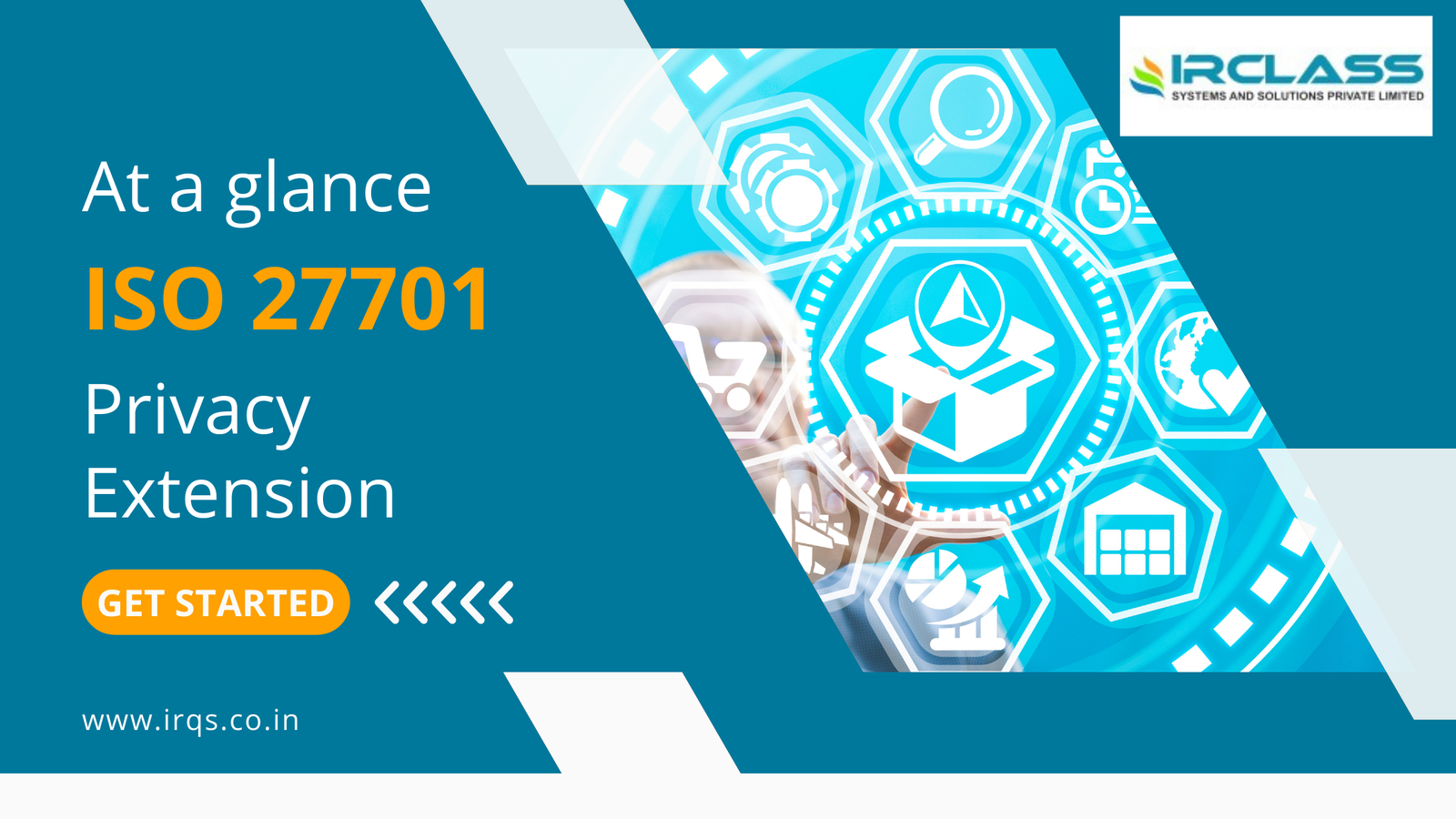
ISO 27701 GDPR Compliance: Safeguarding Personal Data with Confidence
ISO 27701 GDPR Compliance: Safeguarding Personal Data with Confidence ISO 27701 is a global standard offering a framework for personal data protection. The global framework delivers an end-to-end solution for implementing, preserving, and enhancing a Privacy Information Management System or PIMS. The ISO 27701 framework extension to the ISO 27001 standard. It is also an information security management standard. The new-age standard defines the prime requirements for private and personal data safety and management. PIMS and ISO 27701 – ISO 27701 framework guides organizations and helps them manage information security without incompetencies. The framework of ISO 27701 is based on 27001 guidelines with enhanced features. It exhibits and defines the critical requirements for PII management. The international management system standard is the best solution for ensuring data privacy. It states the ideal norms for organizations to manage personal information. With the alarming growth of personal information and data threats, implementing the ISO guidelines for PIMS is the need of the hour. The increasing rate of privacy concerns has led to the awareness of PIMS and GDPR compliance. Currently, implementing a Privacy Information Management System and abiding by the norms of ISO/IEC 27701 is paramount for all organizations. It helps a company assess, analyze, and reduce privacy risks, enhancing the overall management system. Prime benefits – Get a chance to acquire customer reliability and safeguard the PII with a robust framework. It does not restrict the utility or functionality of the data and strengthens the security boundaries. Identify the essentiality of safeguarding personal data with a well-defined management system. Improve the organizational culture to the next level. Abide by the norms and ensure compliance with GDPR and critical Data Protection laws, Regulations, and Standards, acknowledged globally. Strengthen the data confidentiality level and retain the integrity of the information. It increases the utility index and security bar of the organization’s PII. Gain a competitive edge and boost the organization by following the best practices, outlined by the ISO framework. Components of ISO 27701 – How does it safeguard the data? Enhanced data protection – Comprehensive Framework ISO 27701 is a comprehensive framework for information protection and the guidelines help organizations manage the risks efficiently. The framework defines effective risk controls for personal information protection. Implementing the ISO norms ensures effective and enhanced data privacy management in an organization. With the globally recognized norms, get a chance to implement the best technical and organizational steps for PII protection. Prevent the personal information from unauthorized and unwanted access. It eliminates the chances of data disclosure and destruction without authorized permission. Earn competitive advantage – Compliance benefit. Versatile ISO framework – Fits the needs. In the last decade, the privacy concerns have escalated to the next level. Thus, having an ISO 27701 certificate is critical. Identify and acknowledge the ideal privacy practices by implementing the best features of ISO 27701. The versatility of the ISO framework makes it apt for all organizations. It fits the needs of organizations of all sizes and business sectors. Prime takeaways – At a glance ISO 27701 has become a well-recognized standard by redefining the norms of PIMS. The internationally acknowledged standard works ideally for Information Security Management Systems (ISMS) and Privacy Information Management Systems (PIMS). The framework provides a comprehensive framework for different organizations without reducing the operational scope. Implementing the ISO framework facilitates data security and privacy to the next level. With the best practices and regular risk assessment steps, get a chance to identify the hidden vulnerabilities and threats. The ISO standard stands at a level with the GDPR requirements, ensuring an integrated solution. Final note ISO 27701 certification is the ideal choice for organizations searching for a comprehensive framework for data management concerns. The framework helps organizations boost privacy management techniques with enhanced policies and security norms. Safeguard the data confidentially without restricting access or functionality.

Navigating ISO 28000: Understanding the Latest Version for Supply Chain Security
Navigating ISO 28000: Understanding the Latest Version for Supply Chain Security The ever-increasing rate of security issues in supply chain management is alarming. Organizations are in danger and it needs a robust management solution. Companies facing security risks need to elevate their supply chain operations to the next level. The new-age norms and enhanced ISO framework can be the fitting solution. With the expensive and high-value products at stake, it is critical to identify the best solution. The ISO 28000 standards can reduce security incidents and help organizations operate confidently. Mitigate the chances of making financial and business losses alongside the unwanted legal consequences and reputational hassles. Identify the intricate matters of ISO 28000 and boost the security management for the supply chain with a comprehensive approach. Understanding ISO 28000 ISO 28000 is the latest International Standard that helps identify the risk levels throughout supply chain operations. The framework boosts an organization to carry out risk assessments. Experts can make the most of the global norms and apply necessary controls for better supply chain security. ISO 28000 is ideal for all organizations – large or small. The standards hold for any industrial sector or business world. The latest framework and guidelines are apt for organizations where managing critical supply operations is a priority. ISO 28000 offers an integrated business process for better supply chain security management. New additions to the clause: About the new version The latest edition of ISO 28000 defines a few clauses for enhanced security management. The robust framework facilitates organizations to combine the security management system with other management systems. ISO 28000 includes additional recommendations in clause 4. One can find eight principles for security management that enhance the risk management process to the next level. Also, the recommendations related to security strategies, operational procedures, and security plans promote consistency within the organization. Prime benefits – The ISO 28000 latest version delivers robust benefits to companies of various sizes. Take a look at the table to explore the prime benefits of the latest ISO norms – Trade and commerce Promote the trade and commerce prospects while streamlining the transport of goods across international and national borders Enhanced risk management Monitor, assess, and manage security risks across all stages of trade operations and supply chain Market profit Earn a competitive advantage amidst the ever-rising competition Amplify security ISO helps companies secure their processes and supply chains to the next level Assurance and commitment Help the stakeholders realize the organization’s commitment to providing safety and security of goods and services Manage and allocate Manage confidently and efficiently by aiding the management team to operate with finite resources Trade globally Exhibit and practice the best security management measures to meet international norms Reduce expenditure Ensure optimal cost saving by reducing the chances of unwanted security incidents Acquire opportunities Acquire the best commercial opportunities with enhanced security practices for supply operations Better risk management with the latest version Establishing a competent risk management system is a challenging process for an organization. The increased rate of threats like – natural disasters, cybersecurity risks, and geopolitical hassles, needs a robust solution. The enhanced risk management place can help stop the mismanagement in the flow of goods and information. Supply chain disruptions can ruin a business, its reputation, and more. Creating an efficient security management system with the help of ISO 28000 defines the security-related risks. It reduces the risks of exploiting or missing out on dynamic opportunities. The latest ISO framework stresses a proactive risk assessment approach covering – The modern ISO standards focus on the design, installation, management, and replacement of security equipment in an organization. It comprehends the essential information, data, etc. to create a robust management system. Obtain the essential information related to security risks and vulnerabilities to acknowledge the interdependencies between suppliers. It helps in decision-making as well. Make better decisions based on the vulnerability, and risk analysis data specific to the organization. How can it facilitate your organization? Small businesses and ISO 28000 Regardless of the size of a business or its supply chain, ISO 28000 can be the apt solution. The ISO framework helps small organizations during the different stages of manufacturing, storage, and transportation. It is ideal for various industrial sectors and boosts the security practices of companies across the globe. The latest ISO framework comprehends the risks to ensure optimal supply continuity. ISO 28000 highlights the need to implement a security management system. Meet the dynamic business aspects that can impact the supply chain security in a major or minor way. The ISO 28000 latest version considers the diverse aspects involved in transporting the goods besides the supply chain management issues. Small businesses can leverage the benefits of creating and accessing a valuable ISO framework and minimize the risks of security incidents, ensuring a streamlined and safe delivery of goods and supplies. The framework of ISO 28000 can facilitate organizations to safeguard individuals, products, and property with equal competence for small organizations and multinational companies. Closing note ISO 28000 is ideal and applicable to organizations of all types and sizes, including – commercial enterprises, government, and non-profit organizations. With the latest ISO norms of supply chain security management, get a chance to establish, implement, and facilitate the operations to the next level.

Mastering ISO 22301 Lead Auditor Course: Your Guide to Professional Excellence
Mastering ISO 22301 Lead Auditor Course: Your Guide to Professional Excellence ISO 22301 is the well-known international standard for business continuity management systems or BCMS. ISO 22301 offers a holistic framework for organizations to resolve the requirements of business continuity hassles. The well-defined framework prepares the organization and helps manage unexpected incidents. It also helps prepare and recover from unforeseen business incidents. Implementing a BCMS is the ideal solution for the organization. They can detect and mitigate dynamic business threats, ensuring uninterrupted financial operations. The auditors with an in-depth overview of the ISO 22301 framework can ensure the best professional advantages in the dynamic business landscape. How? Because they are well aware of the requirements ideal for organizations of different types, sizes, and complexities. ISO 22301 is an excellent choice for organizations, and complying with the dynamic business continuity policies is a must. BCM – Business continuity management: The growing need The dynamic challenges in the commercial landscape have promoted the significance of a resilient BCMS in an organization. Meeting the ISO 22301 standards has become a benchmark for organizations regardless of the industrial sectors. The ISO framework facilitates the ability of an organization to handle disruptions, reduce risks, and safeguard critical operations. The ISO 22301 global standard strengthens organizations to regularize the response plan for unforeseen incidents, enhancing the overall operational security. The ISO 22301 certified professionals can demonstrate their profound knowledge of the BCMS framework requirements and ease the worries related to effective implementation. The professionals are well-prepared to lead teams and can ensure optimal professional ease in the long run. The professional role of ISO 22301 lead auditor – An expert ISO 22301 Lead Auditor has a pivotal role in managing organizations during the different stages of implementation and audit. The trained professionals have the necessary skills and knowledge base to comprehend the effectiveness of the already-existing business continuity measures. The professional role of the auditors is significant while evaluating risk management processes, performing audits, etc. Benefits of auditor training – Decode the popularity Prime Aspects of ISO 22301 Lead Auditor Course The ISO 22301 Lead Auditor Course covers the diverse aspects of the auditor curriculum. The training modules cover the prime components, including – risk assessment, business impact analysis, etc. The skill set promotes the development of a robust BCM plan for an organization. The interested participants can learn and comprehend practical insights with the help of real-world case studies and training exercises. All these have crucial roles in enhancing the ability to review and implement BCM principles in dynamic organizational contexts. The training makes the Lead Auditors competent enough to resolve the professional requirements. They are well-equipped to investigate and analyze the complexities of BCM implementation for an organization. Professionals pursuing the ISO 22301 Lead Auditor Training can obtain a certification. The certificate is significant for the career and helps a professional gain a competitive edge in the long run. Certification exhibits and validates their expertise in business continuity. They can operate as audit leaders and guide organizations during uncertain times. Also, organizations, with certified ISO 22301 Lead Auditors as staff members can gain credibility. It assures the stakeholders and reflects a commitment to the ideal practices of business continuity management. Acknowledge the professional perks. Who can consider the professional training? Training objectives – At a glance The objective of ISO 22301:2019 lead auditor training comprises the following – Meet the compliance norms of the ISO 22301 framework. Review and acknowledge the areas that need improvement and analysis. Gain credibility as a skilled auditor Enhance the diverse and lucrative career opportunities in auditing. Exhibit a professional commitment to organizational resilience and business continuity. Obtain an overview of the necessary skills for planning and executing ISO 22301 audits. Gain professionally with the best professional training course Implementing a BCMS framework helps an organization comprehensively. It provides a solution for continual improvement, boosting the performance to the next level. One can meet the legal requirements and the business continuity objectives. The audit program focuses on the assurance processes that help establish an effective BCMS. Professionals can gain in the long run by attending the course. Boost the career prospects by learning the critical skills necessary for audit sessions. It helps a professional to assess and analyze the implementation steps of ISO 22301:2019. With the best training module, get a chance to prepare and conduct audit activities with optimal professionalism. Closing thoughts Identify the essential audit norms professionally and meet the requirements of management system standards. Learn the associated methodologies, techniques, and tools with the best ISO 22301 Lead Auditor Course and ensure a lucrative choice for your career goal.

BRCGS Audits: A Step-by-Step Guide for a Seamless Certification Process
The industrial sector for food processing and production is extensive. The various standards related to food safety and quality determine the brand quality. BRCGS or British Retail Consortium Global Standards is the world-famous authorizing agency defining the essential norms for food safety and quality. One can ensure the best quality control and safety measures with BRCGS audits. The integral components of the audit are diverse and the professionals play a pivotal role in the process. One must connect to the top professionals in the industry to meet the highest standards. In the food industry, safety is a pivotal aspect. The essentiality of safety control is beyond a box to tick on a compliance checklist. Food safety is integral for consumers and brands involved in its production. Ensuring product safety and high-grade quality ensures optimal compliance with food safety standards by manufacturers, retailers, and suppliers. BRC standards and audits are part of the ideal industrial practices and frameworks. These help businesses achieve optimal safety and quality status. Achieving BRCGS certification denotes a commitment to excellence and boosts reputation. It is a noteworthy aspect of food safety, quality, and compliance with industry norms is essential. About the BRC standards – A global initiative BRC was established in 1992. The British Retail Consortium or BRC promotes the ideal practices for the food industry amidst evolving landscapes. It defines the regulatory frameworks of UK and EU food safety laws. The BRC Global Standards or BRCGS is a prime global benchmark, promoting food safety and quality programs worldwide. BRC Global Standards is a prominent safety and quality certification program for food products. The standards were developed by the British Retail Consortium, the trade association of the UK retail industry. BRCGS covers an extensive range of food safety and quality concerns. The safety issues include – food safety management systems, product safety, packaging, storage, and distribution techniques. It also delivers a framework for product safety, quality, and operational measures for the food ingredient manufacturing, processing, and packing sector. The BRC Global Standards food safety certification program helps certify suppliers across different countries. Audit and understanding – Both are necessary The BRCGS audit requires an in-depth understanding of the standards defined by the consortium. BRCGS defines various standards tailored to meet the requirements of specific sectors like – food safety, packaging, storage, and distribution. Businesses can review the relevant standards based on the industrial type and product offerings to decide the best. Preparation is necessary to ensure a successful BRCGS audit. Hiring a dedicated team to oversee the certification process is the best approach. They can conduct a gap analysis drill to identify areas the shortcomings. The proactive approach helps implement the corrective actions before the audit commences. 9 Integral aspects – Critical to note BRCGS audit is relevant for organizations meeting the following criteria – The updated standards contain nine core sections, including – Significance of audit – The BRC can improve the safety and quality of food products with the best-in-class and high standards. BRC certification is a necessity for many retailers and suppliers. The certification has helped raise the standard for food safety across the industry. One can ensure the best solution by adhering to the defined benchmarks. The BRC-certified companies can manage and mitigate the risk of food safety incidents, ensuring optimal consumer confidence in their products. Components of BRCGS audit A BRC audit evaluates the compliance and safety status and helps you match them with the BRC Global Standards. It is a comprehensive assessment of the food safety management system, food management processes, and operational procedures for the organization. The audit is conducted by an independent BRC-accredited certification body, ensuring optimal safety and reputational advantage. Make a prudent call. Ensure the best audit services with professional auditors. They have the necessary resources to simplify the process and deliver accurate reports on the food safety index. IRQS is first certification body to receive NABCB Accreditation for BRCGS standard in India. Consider the professional services to ensure optimal accuracy.

What Does An Internal Auditor Do? A Comprehensive Guide For You
Internal auditors are critical for all organizations. The professionals help in protecting the organizations through their expert services. They analyze compliance and review the risks to bring the best strategy for the organization. Internal auditors review the company documents and data to recognize critical aspects like – Internal auditors operate across different industries. It can be healthcare, tech, education, or government. The expert auditors hold full-time professional positions and work as contractors for short-term audit projects. Professionals who can analyze perfectly and work with numbers are the perfect contenders for becoming internal auditors. They analyze and review to report the shortcomings and offer a lucid overview to the internal stakeholders. The auditors work independently. Internal auditors necessitate analytical and critical thinking skills with sharp attention to detail. The professionals are always in high demand. Read on and obtain critical notes about their profession and responsibilities. The duties and responsibilities Internal auditors check and analyze the critical records and financial documents in an organization. They examine and find out the underlying issues including – compliance concerns, risks, fraudulences, inconsistencies, and data inaccuracies. After checking the records within the audit’s scope, the auditors investigate for figuring out the shortcomings. Internal auditors implement their resources and knowledge of laws, industry regulations, and organizational policies to recognize the chances of noncompliance, fund misappropriation, and potential risks to the business. Besides these, the auditor takes care of the following responsibilities. Highlighting the prime duties of an internal auditor – The ultimate guide Prime qualities and service traits of an internal auditor Ways to Become a professional internal auditor An internal auditor must have a bachelor’s degree in disciplines like finance, accounting, etc. Ideally, having master’s degrees in business administration, accounting, auditing, business law, or taxation can be helpful for the career. But there are certification programs with specialization training for internal auditors that help them learn essential skills. Get the best auditors with IRQS. Now you know the offerings brought by the internal auditors. Get in touch with IRQS, the one-stop destination for connecting to the top auditors. Efficient audit solutions with accurate reports make IRQs suitable for internal audits. Find a proficient team of auditors with several years of experience and ample resources.
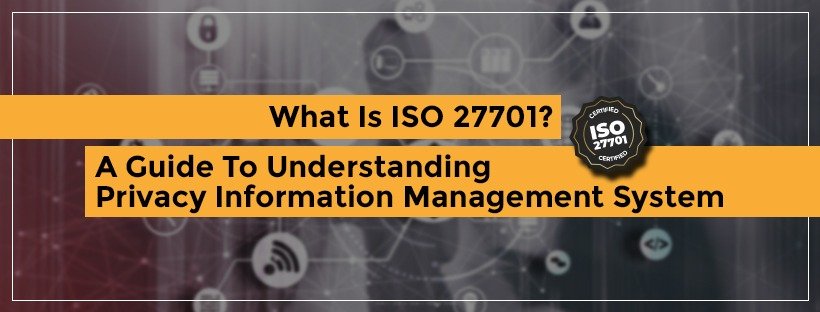
What Is ISO 27701? A Guide To Understanding Privacy Information Management System
Privacy of information is a priority for all organizations and requires a well-defined model for optimal management. Half-hearted efforts do not yield a positive outcome for ensuring information privacy. One needs to recognize the role of international standards in ensuring information safeguarding. This is where the ISO 27701 certification comes into the picture.

Why ISO 21001 Is Important For Education Organizations?
ISO 21001 brings a compact management process and tool for organizations that operate in the educational sector. The organizations providing education-based products and services require certification. It indicates their capability of serving the requirements of the service seekers, learners in this case. The ISO 21001 is a stand-alone and unique management tool. It also aligns with distinct certification models like ISO 9001, ISO 14001, etc.
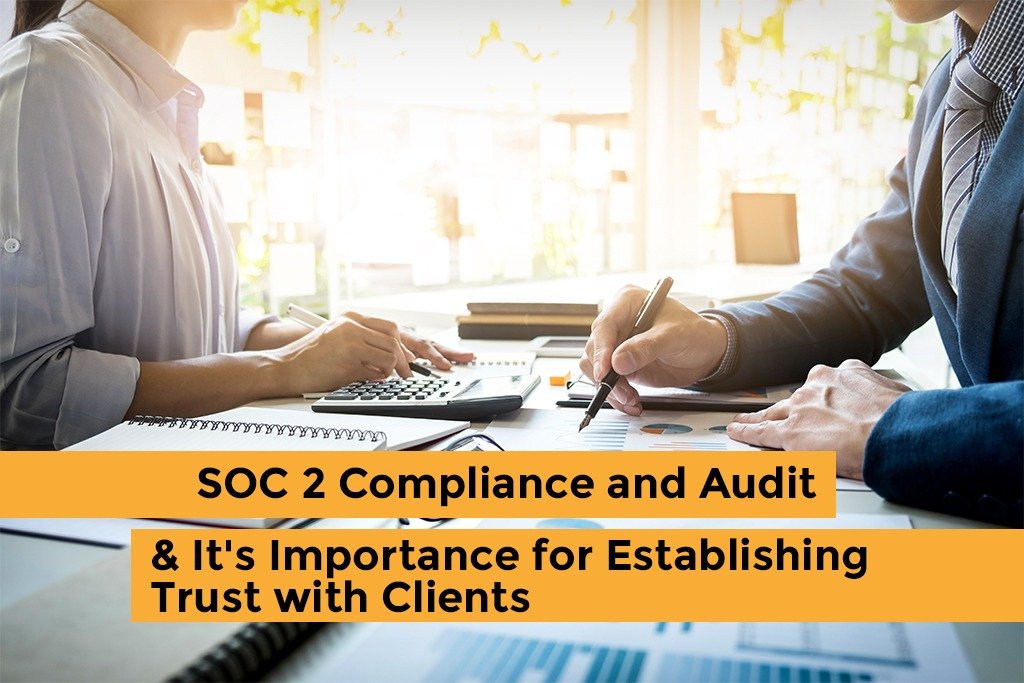
SOC 2 Compliance and Audit & It’s Importance for Establishing Trust with Clients
SOC stands for service organization control. The certification is currently an indispensable part of organizations that function in the IT field. Even businesses providing third-party IT services need it. SOC 2 compliance and reports help develop customer or user trust in the service brand. It also helps in the growth of the business organization. The SOC is issued by AICPA, the abbreviation for American Institute of Certified Public Accountants. It primarily focuses on data risk and protection to bring integrity.
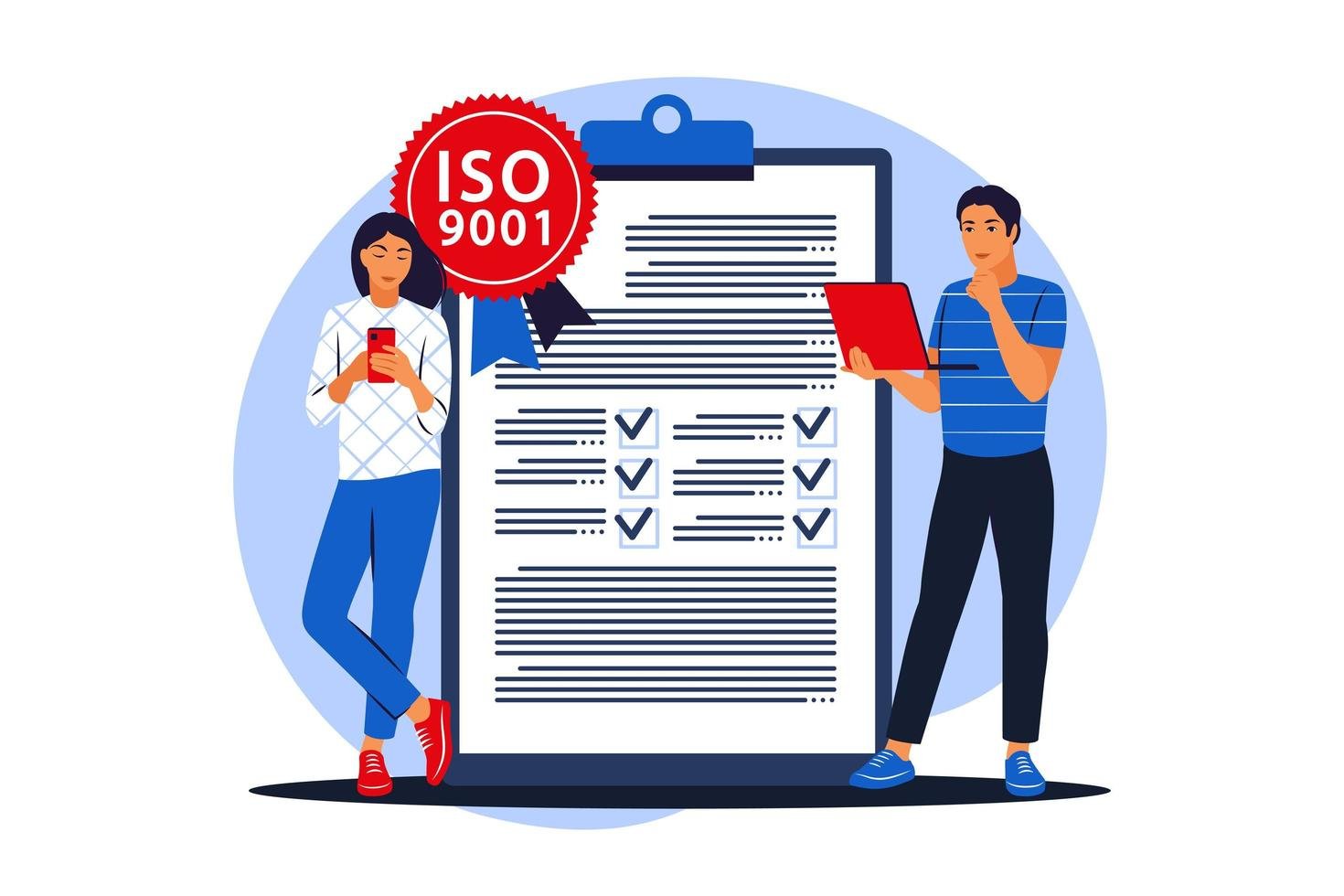
How can a startup benefit from ISO 9001 certification?
Awareness regarding ISO certifications is crucial in every sector. For business or service-based organizations, the ISO certifications hold major significance. The ISO 9001 certification is particularly vital as it holds the ability to upscale a small venture into a bigger enterprise. One of the most popular standards among the many ISO certifications in various industrial aspects is the ISO 9001 quality management standard. For more than thirty years, millions of organizations have understood the significance of ISO 9001 certification.
Search
Useful Links
Recent Posts

What Is Carbon Footprint Verification & Why It’s Critical for Your ESG Goals

Why ESG Reporting Is the Future of Business Strategy
